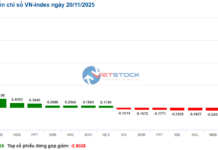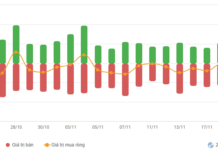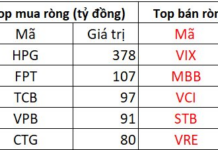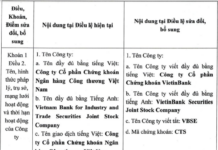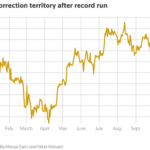Traditional Markets Struggle as Customers Move Online
Dong Xuan market, once a bustling hub, now sees only a handful of tourists walking past stalls overflowing with clothes, shoes, and souvenirs. Sellers chat or play on their phones, awaiting customers.
“It’s already noon, and no one has bought anything,” says Phung Mai Hung, a clothing trader, to Rest of World. “Sales are poor due to the impact of e-commerce.”
Mr. Hung and his wife have run Lan Hung, their clothing store in the market, for over 30 years. Facing dwindling foot traffic in recent years, he taught himself to build a website, a YouTube channel, and put his shop on Google Maps, to no avail. “Selling to tourists is fun, but it’s not enough to live on,” says the 63-year-old.
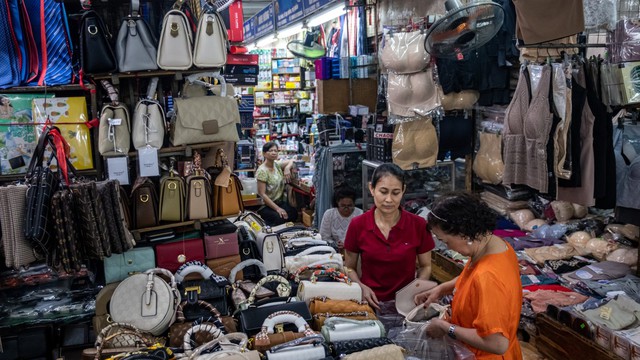
Traditional markets like Dong Xuan, with hundreds of stalls selling everything from food to clothing to household goods, are a staple across Vietnam. However, with the rise of e-commerce, these markets are seeing fewer and fewer customers.
“Many markets are now only operating at 60% capacity,” says Vo Van Khanh, executive director of the Vietnam E-Commerce Association (Vecom), leading an initiative to revive traditional markets. “They could shut down if we don’t take action.”
Across Southeast Asia, e-commerce is booming, with a total goods value of around $115 billion in 2023, a 15% increase from the previous year, according to Momentum Works. Local sellers struggle to keep up with the deep discounts, rapid delivery, and cross-border sales of predominantly Chinese e-commerce platforms.
While Indonesia, Malaysia, and the Philippines have responded by imposing higher import taxes on e-commerce transactions, Thailand and Vietnam’s small businesses are calling for similar measures.
Vietnam, however, has taken a different approach, with authorities encouraging traditional traders to embrace e-commerce. Vecom, along with industry leaders like TikTok Shop and Shopee, has been providing training and support to make this transition possible.
Vecom has trained around 450 sellers in nine markets since May, teaching them how to set up on e-commerce platforms, manage online orders, and live stream to sell their products.
The association aims to reach 1,000 markets next year, with a goal of successfully converting 500 suppliers. They are also partnering with Shopee to train over 20,000 small businesses nationwide.

A Steep Learning Curve
However, aside from a few success stories, most sellers are “very slow to adapt,” says Mr. Khanh. According to a Vecom report, less than half of the 450 trained merchants have an online presence due to a lack of digital skills and challenges in supplier management and logistics.
“Another critical challenge lies in keeping up with the rapidly changing preferences of consumers and market trends,” a Shopee spokesperson shares with Rest of World.
Mai Van Tung, a dried seafood seller at Cho Con in Da Nang, enrolled in TikTok Shop after Vecom’s training earlier this year. “I only sell two to three items a day. It’s not efficient,” he says. “The videos might get trending, and many people will know about my shop and visit, but it’s not efficient in terms of sales.”
Live streaming hasn’t been very helpful either, as customers from other regions struggle to understand his accent, and shipping costs are high because he can’t control the logistics.
Adapting to the requirements of e-commerce platforms is no easy feat, says Pam Trung Thanh, CEO of AZ Digital, which trains retailers in online commerce. For traditional sellers, invoicing, packaging and logistics, and product traceability to meet platform requirements are significant challenges that training alone may not overcome.
Even understanding how e-commerce works is a hurdle. Mr. Thanh recounts how a traditional sausage seller he trained would close shop for the day once they sold out. “But online, customers don’t sleep, and if you have to deliver… they don’t have the staff to handle it. Being able to sell is one thing; doing it efficiently is quite another.”
E-commerce platforms are also becoming more selective. While sales on Vietnam’s five largest e-commerce sites, including Shopee and Lazada, grew by nearly 16% in Q3 year-on-year, the number of online stores has shrunk by almost a fifth as consumers favor verified sellers, according to Metric, an analytics firm.

The Future of Traditional Markets
Many sellers, reluctant to compete in the cut-throat world of e-commerce, are turning to social media and messaging apps to reach customers.
In Da Nang, Mr. Tung has around 10,000 followers on his dried seafood shop’s Facebook page. He prioritizes this channel to reach customers as far as Hanoi, as it allows him to communicate directly with them.
Tran Thi Kieu Thanh Ha, a project manager at HealthBridge, a Canadian non-profit, tells Rest of World that at fresh produce markets in Hanoi, sellers often update information and promotions via the messaging app Zalo.
While she supports efforts to help sellers get onto e-commerce platforms, she questions, from a preservation standpoint, “If all the sellers go online, what will happen to the markets?”
Nguyen Phuong Anh, a 22-year-old student in Ho Chi Minh City, stopped going to local markets last year and now prefers to order groceries online. “I’m too busy, and it’s too hot,” she says.
But when she craves traditional food, she heads to the market for ingredients. “They have more variety,” she explains. “For example, only the market sells green eggplants.”
However, according to Mr. Thanh, wholesale markets like Dong Xuan can’t compete with e-commerce platforms unless traders offer unique products or personalized customer service.
At Dong Xuan market, aside from the now-common QR codes for bank transfers and Zalo numbers for shops, there are few signs that sellers have embraced e-commerce.
Mr. Hung, the clothing trader, hasn’t signed up for e-commerce training. He’s watching the dwindling number of suppliers and rising operating costs. “We’re too old to sell on e-commerce platforms,” he says. “We’re still struggling to make a living. I don’t know what to do.”
The Ultimatum for Temu: A Make-or-Break Moment
The General Department of Taxation representative stated that the new Temu platform is expected to generate taxable revenue in October and will declare its revenue in the fourth quarter of this year. The deadline for submission is January 31, 2025, provided it receives permission from the state management agency to operate. Meanwhile, the Ministry of Industry and Trade has issued an ultimatum, demanding that the platform complete the necessary procedures as per regulations.
Unlocking Trade Potential: Vietnam Forges its First Free Trade Agreement with an Arab Nation
On October 28, Prime Minister Pham Minh Chinh and UAE Vice President and Prime Minister Sheikh Mohammed bin Rashid Al Maktoum witnessed the signing of the Comprehensive Economic Partnership Agreement (CEPA) – Vietnam’s first free trade agreement with an Arab country.

